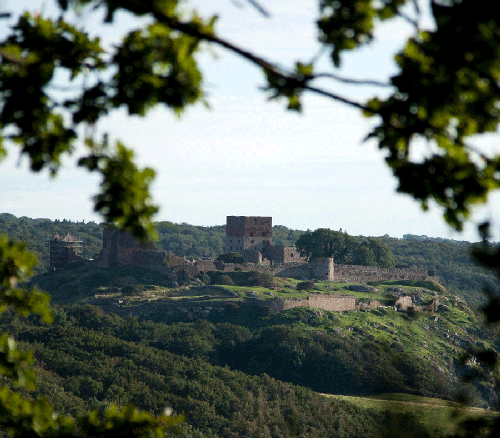Government and politics
The Folketing is Denmark's parliament
The system of governance in Denmark is a parliamentary democracy. The Parliament in Denmark is called the Folketing, and it has a multi-party structure. Since no single party has enough of the 179 votes to rule on its own, several parties negotiate on goals to form a multi-party coalition.
The leading figure of one of the stronger parties within that coalition becomes the prime minister, while leaders from the other coalition parties some times take on important roles such as the Minister for Justice, the Minister for Finance, and the Minister for Foreign Affairs.
The current government was formed on 15 December 2022 and consists of the Social Democratic Party, the Liberal Party and the Moderates.
Elections for the Folketing take place at least every four years, but a prime minister can call an election at any time - and usually chooses a moment that will be advantageous to his or her party.
The Danish King is the official head of government in Denmark, but his role is largely ceremonial.

Danish democracy builds on a 175-year-old Constitution
The framework for Danish democracy is the Danish Constitution of 1849, making it one of the oldest constitutions in the world. This Grundlov, or basic law, is a set of fundamental principles and rules for society that other laws must comply with, such as freedom of expression and freedom of assembly.
Constitution Day is celebrated every year on June 5. Denmark is one of few countries in the world not having a national day, but Constitution Day gets close. On Constitution Day, the people of Denmark celebrate democracy including freedom of speech, individual rights, and freedom of assembly.
The constitution also outlines the Danish justice system and the rights of those accused of crimes. For example, a person who is arrested must be presented for a grundlovsforhør, or constitutional hearing, within 24 hours, so a judge can decide whether or not there is enough evidence to keep the person in jail.
Did you know
The issuing of bills and the creation of legislation
Each year, Denmark's Parliament considers 200-300 proposed bills. The heads of ministries prepare most bills, but members of Parliament can also propose legislation. The legislative process is designed to provide time for deliberation. Standing committees discuss the proposals and consult interest group representatives, scholars, and other external experts. Finally, the Parliament decides whether to pass or decline a bill.
The Parliament is also responsible for adopting the Finance Bill once a year, which determines the Danish state's annual budget. The Finance Act is a highly complex law, since it allocates funds for various state entities and operations.
In addition, the Danish Parliament is required to approve each new citizen of Denmark. In practice, the candidates for citizenship are usually bunched into groups of 1000 or more for approval by the Parliament.
Parties currently present in the Danish Parliament
- The Danish Social Democrats (Socialdemokraterne)
- The Liberal Party (Venstre)
- The Danish People's Party (Dansk Folkeparti)
- The Social Liberal Party (Radikale Venstre)
- The Green Left (Socialistisk Folkeparti)
- The Red-Green Alliance (Enhedslisten)
- The Conservative Party (Det Konservative Folkeparti)
- The Alternative (Alternativet)
- The Denmark Democrats (Danmarksdemokraterne)
- The Moderates (Moderaterne)
- Liberal Alliance
Four seats in the Parliament are reserved for representatives from Greenland (two) and the Faroe Islands (two). The following parties secured one seat each in the latest general election:
- Inuit Ataqatigiit, Greenland
- Siumut, Greenland
- Sambandsflokkurin, The Faroe Islands
- Javnaðarflokkurin, The Faroe Islands


